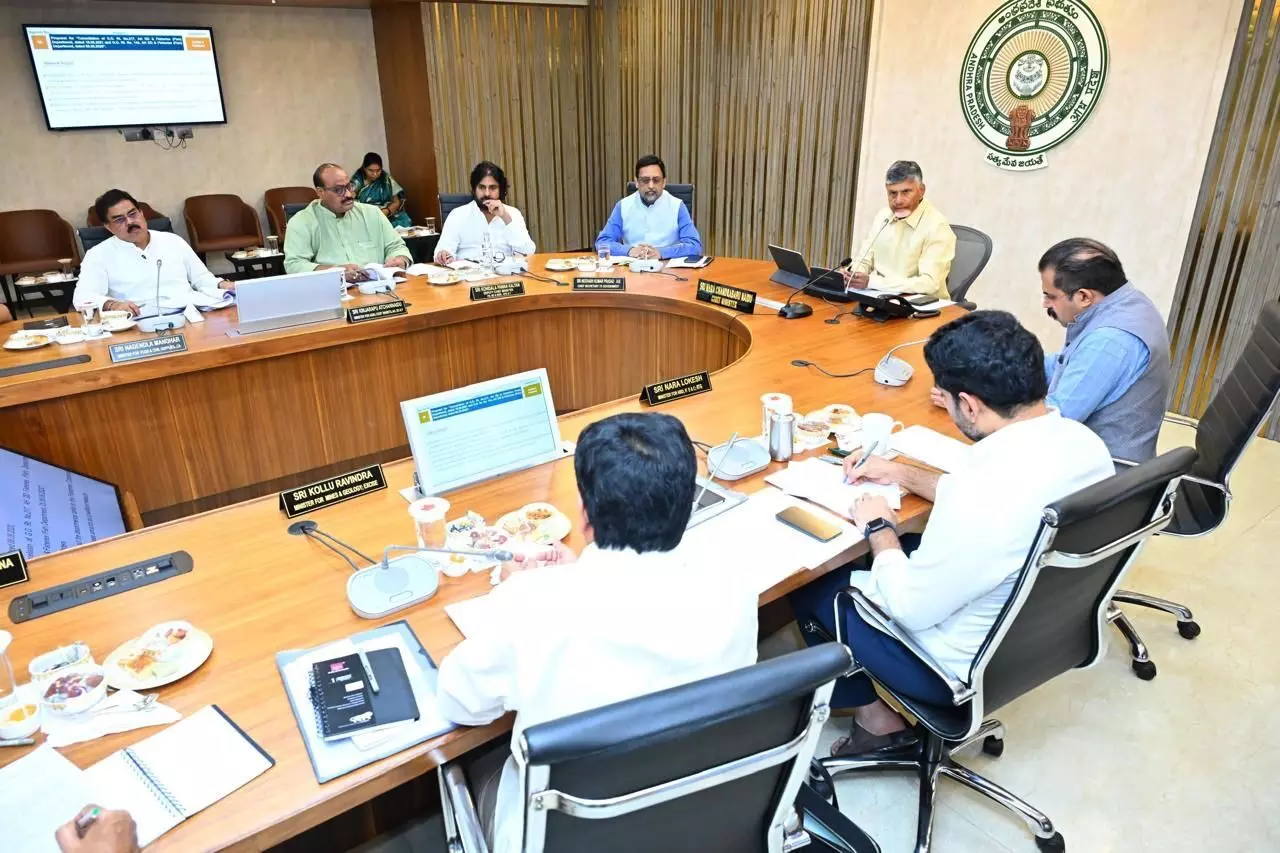Andhra Cabinet approves new passbooks issuance, eases conditions to contest local body polls
He said new revenue records and passbooks will be made without causing any inconvenience to people
By Newsmeter Network
Amaravati, Aug 7 (PTI) Andhra Pradesh Cabinet headed by Chief Minister N Chandrababu Naidu on Wednesday approved the issuance of new pattadar passbooks (revenue records), removing the ineligibility conditions vis-a-vis contesting local body elections for those having more than two children and others.
Briefing the Cabinet decisions, Information and Public Relations (I & PR) Minister K Parthasarathy said the new passbooks bearing the official emblem of the state and QR codes will replace the 22 lakh land records distributed at a cost of Rs 23 crore.
He said new revenue records and passbooks will be made without causing any inconvenience to people.
Following the rise of complaints related to 22A category lands under the Revenue Department, he said the chief minister advised the Cabinet to conduct gram sabhas (village meetings).
"In the coming three months there will be no registrations until the gram sabhas are completed," said Parthsarathy, addressing a press conference at the Secretariat.
The Cabinet also scrapped a rule restricting individuals with more than two children from continuing as members of municipal corporations or contest municipality elections.
It also removed the relevant amendments made to the Andhra Pradesh Municipal Corporation Act, 1955 and Andhra Pradesh Municipalities Act, 1965 which imposed these restrictions. Similar provisions were also extended to village panchayats.
The Cabinet extended the ban on the Communist Party of India (Maoist) and Revolutionary Democratic Front (RDF) by a year as per the Andhra Pradesh Public Security Act, 1992.
Further, the Cabinet proposed to overhaul the Excise Department in the next 45 days for better supervision and enforcement, including appointing expert consultants.
Andhra Pradesh government teams are already touring several states across the country to study the best practices in liquor retail sales, procurement, quality control and pricing mechanism.
A Cabinet sub-committee has been formed to examine the Excise Department's proposal before the Cabinet's approval, which could be given by September 5 while the new liquor policy is expected to be implemented from October 1.